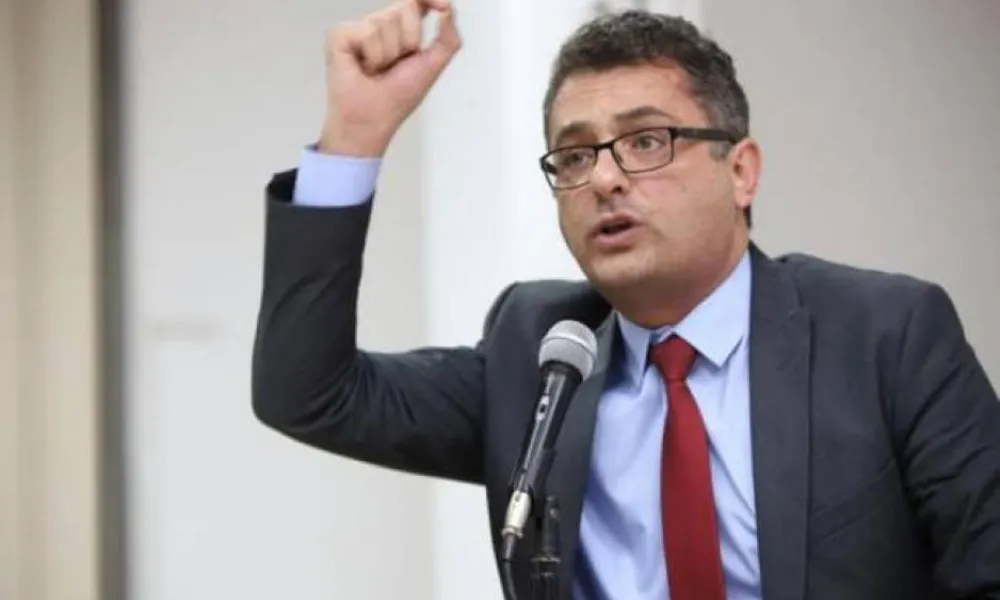Tufan Erhürman’s sweeping victory in last Sunday’s Turkish Cypriot 'presidential elections' has dramatically reshaped the political landscape in the north and reopened the possibility of renewed negotiations on the Cyprus issue after eight years of stalemate.
While the newly elected leader has publicly expressed readiness to return to the negotiating table, he has also set out four key conditions that challenge the Greek Cypriot side and require difficult conversations, not only with President Christodoulides but also with Ankara. Convincing Turkish President Recep Tayyip Erdoğan to reintroduce the bizonal bicommunal federation (BBF) into Turkey’s political agenda, while asserting Turkish Cypriot autonomy, will be one of Erhürman’s most delicate balancing acts.
Chemistry with Christodoulides
During his campaign, Erhürman made it clear that if not invited by the Greek Cypriot President for a meeting, he would take the initiative himself within ten days of his election. He also proposed a loose federal model with fewer powers concentrated in the central government, and outlined four conditions for returning to talks:
-
Full acceptance of Turkish Cypriot political equality as a starting point, not a matter for negotiation;
-
A defined timetable for the process to avoid open-ended negotiations;
-
No reopening of issues agreed upon in past rounds of talks;
-
Guarantees that, in the event of another collapse, Turkish Cypriots are not left indefinitely trapped in the current status quo.
President Christodoulides is currently abroad, but government spokesperson Konstantinos Letymbiotis has confirmed that a meeting will be pursued once the president returns to Cyprus.
That first meeting between the two leaders will be crucial. Not only will it test their personal chemistry, but it will also serve as the first clash over substance, and determine whether Erhürman’s preconditions become a stepping stone or a stumbling block.
Having secured 62.76% of the vote, Erhürman enters office with a strong mandate. That makes him a potentially formidable negotiator but he will also need to temper strength with realism. As UN envoy María Ángela Holguín said last July, "it takes two to tango." Should his conditions prove unrealistic, Erhürman risks being blamed for another deadlock and early in his term.
Holguín is expected to return to the island soon, as the UN seeks to reignite momentum following the recent trilateral meeting in New York. Her role as mediator may prove vital in navigating the upcoming phase.
Ankara trip will send a signal
One of the most closely watched moves in the coming weeks will be the order in which Erhürman engages key players. Will he meet President Christodoulides before travelling to Ankara, or after?
Traditionally, a visit to Turkey is the first official act of any newly elected Turkish Cypriot leader. On election night, Erhürman reiterated that foreign policy decisions would not be taken without consultation with Ankara. Should he follow this line and travel to Turkey first, it will signal continued alignment with Turkish decision-making. However, if he chooses to meet Christodoulides beforehand, he will send a powerful message - that Turkish Cypriots have political agency and that Turkey supports their choices.
Erdogan’s reaction
President Erdoğan’s response to Erhürman’s election was notably restrained. He congratulated the new leader and noted that the results “reflect the will of our Turkish Cypriot brothers.” If Erdoğan truly respects that will, the next step would be recognising and supporting it.
However, such a shift may not be easy. Key players in Ankara are already pushing back. Devlet Bahçeli, leader of the Nationalist Movement Party (MHP) and Erdoğan’s primary coalition partner, condemned the election outcome and called for its annulment. He insisted that any return to a federal model is unacceptable and openly called for the annexation of northern Cyprus.
Erdoğan, though, may now be in a stronger position to resist such pressure. With no serious domestic opposition and the main opposition party weakened by legal battles, Erdoğan may find it politically feasible - though not without cost - to steer a new course on Cyprus.
The SAFE factor
Turkey’s ambitions to join the EU’s new defence initiative, SAFE, also factor into the equation. With significant potential benefits for Turkey’s growing defence industry, Ankara is eager to secure a place in the programme. However, both Greece and Cyprus have made it clear that respect for member states’ sovereignty is a non-negotiable condition.
In this context, resolving or at least de-escalating tensions in the Eastern Mediterranean, including Cyprus, becomes strategically important for Turkey. It is no coincidence that Foreign Minister Hakan Fidan recently stated publicly that permanent peace is achievable in the Aegean, the Eastern Mediterranean, and Cyprus.
Initiative
For any breakthrough to be credible, the Greek Cypriot leadership will also need to take initiative. In Ankara, there is deep suspicion of Cyprus’ military cooperation with Israel and its growing defence acquisitions. These are seen as hostile moves.
Unless President Christodoulides acts to build trust and demonstrate genuine intent for a negotiated settlement, Erhürman’s efforts to sway Ankara may falter. Without reciprocal gestures, Turkey is unlikely to embrace a federal model, and another opportunity for peace may slip away.
